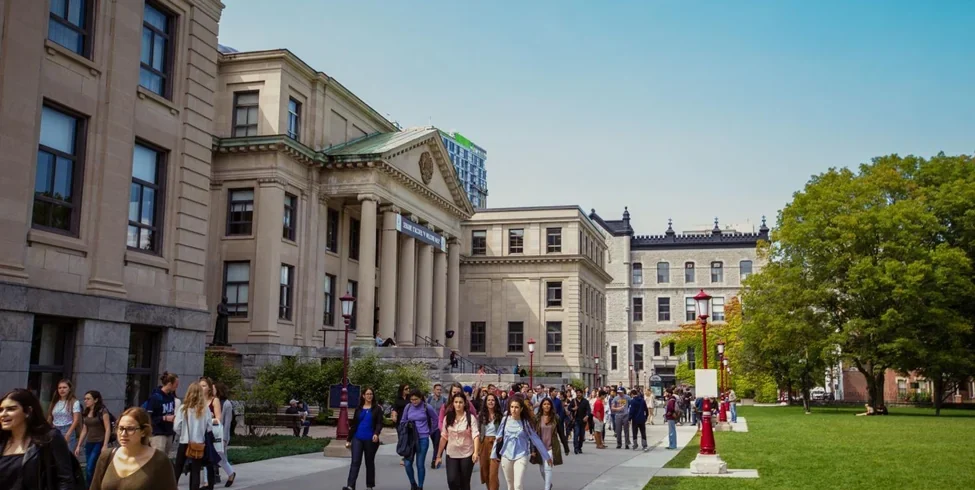
Every year more than 400,000 international students come to study in Canada from all around the world. Most students are from India, China, South Korea, France, Vietnam, Brazil, Iran, Nigeria, the United States, and Japan.
Canada has one of the largest international student populations in the world. There are many reasons behind the appeal of education in Canada to international students. Canada ranks 4th globally for teaching quality and 8th for reaching career goals. It also tops the most educated countries in the world list, as number one.
Five Canadian universities ranked in 2018 top 100 for the best universities in the world, according to the Times Higher Education World University Ratings. Because of its known diversity and inclusive values, studying abroad in Canada is easier for international students coming from around the world. With these being said, the first step for you to be able to study in Canada is to obtain a study permit.
What is a study permit?
The study permit is a document that allows foreign nationals to study at designated learning institutions in Canada. You should know that the study permit is not a visa. It alone does not let you enter Canada. In addition to the study permit, you may also need a visitor visa or an electronic travel authorization (eTA) depending on your citizenship.
A study permit is usually valid for the length of your study program, plus an extra 90 days. This additional period is given to the holder to make preparations to leave Canada or to apply for an extension. If you do not finish your courses before the date on your permit, you must apply to extend your stay as a student. If you do not, you will need to stop studying and leave Canada. It must be noted that if you finish your studies early, your permit will stop being valid 90 days after you complete your studies, regardless of what day is printed on the study permit.
You may leave Canada during your studies for a vacation or family visit; however, keep in mind that when you return, you may need to show proof you are still enrolled in your school. Moreover, your visa or electronic travel authorization (eTA) must be valid for you to be able to enter Canada.
In order to be eligible for a study permit, you must be enrolled at a designated learning institution, and prove that you have enough money to pay for your tuition fees, living expenses, and the expenses for your return transportation. One of the essential parts of the eligibility requirements is that you must prove to an officer that you will leave Canada when your study permit expires.
You should note that a well-constructed study plan would be beneficial in the approval of your application.
Can I include a family member in my application?
You may include a family member on your application to accompany you to Canada. Your spouse may even be able to obtain an open work permit, and your minor children may be able to study at Canadian elementary and secondary schools.
What are my options after graduation if I choose to stay in Canada?
As I touched on the topic above, the study permits expire 90 days after graduation. To avoid losing your status in Canada, you need to either extend your study permit or apply to change your conditions to a different one.
Depending on your school and the length of your education, you may be eligible for a post-graduation work permit (PGWP) for up to three years. This program allows eligible students to obtain an open work permit to gain valuable Canadian work experience. Later, the work experience you have gained may help you qualify for permanent residence in Canada through the Canadian experience class within Express Entry applications.

Why do you need the assistance of a lawyer?
You must retain an experienced lawyer for your study permit application to avoid misrepresentation and ensure a smooth process for your future applications in Canada.
Immigration applications made to Canada are being processed by Immigration, Refugees, and Citizenship Canada (IRCC). Whether you apply electronically or by paper, the IRCC opens a profile for you under which all your information and application documents are stored. This accumulating information is cross-checked every time you make a new immigration application.
When there is an inconsistency in the application package and the data stored in the system, the person might be asked to provide an explanation or the application may be rejected. These inconsistencies might later become severe problems for your immigration to Canada. The IRCC might also revoke a permit or a status depending on the severity of the misrepresentation. Therefore, it is extremely important to retain a lawyer to assist you in your initial application.
As in many other immigration applications, the study permit application also has some nuanced aspects that you might need help with. An experienced immigration lawyer in Toronto would help you improve your approval chances and prepare the best possible application for you based on your circumstances. Moreover, since the Post-Graduation Work Permit can only be issued one time for a student, and it is directly related to your study in Canada, it might be crucial to have assistance in your initial study permit application.
Please feel free to reach out to Lewis & Associates LLP for your immigration needs.






